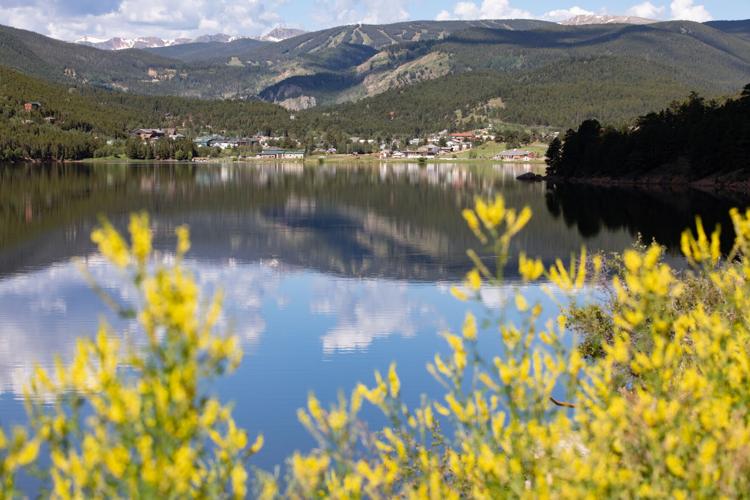Does a river have rights? | Vince Bzdek
Does a river have rights?
That very question came to a roaring head recently in the little town of Nederland.
Our country, of course, is based on the idea of “natural rights,” which the founders identified as life, liberty and the pursuit of happiness, as well as the right to property. These rights — and this is what was truly revolutionary about the American Revolution — cannot be granted by rulers, governments or even “the people,” the founders declared. They are inherent in the nature of human beings — we were born with these rights.
A group of environmentalists lately has been asking why a similar set of natural rights doesn’t extend to nature itself. There is a growing global “rights of nature” movement that aims to secure recognition that ecosystems and individual species and rivers have just as much legal right as humans do to exist and regenerate.
That movement inspired two recent resolutions to protect Boulder Creek in Nederland, one of which recognized that, within town limits, the creek and its watershed are “living” entities possessing “fundamental and inalienable rights.” Nederland even appointed two legal guardians to act on behalf of Boulder Creek to ensure those rights.
Such a move fits Nederland’s profile, surely. Although originally a mining town, Nederland later became a haven for hippies and the counterculture in the 1960s and today is probably best known for the annual Frozen Dead Guy Days.
But now Nederland has decided to repeal those resolutions, worried that they were too limiting when it came to deciding what was good for the creek, and people dependent on the creek.
Nederland’s mayor, Billy Giblin, recently advanced an application with the state to construct a dam and reservoir on Middle Boulder Creek to provide the town with a more secure water supply given worsening droughts in the area, which, ironically, some environmentalists say are the result of climate change. A person could argue that the mayor is trying to proactively address climate change with his new proposal.
But then Save the World’s Rivers, a Colorado-based nonprofit, filed opposition to Nederland’s application and triggered a national controversy over the rights of nature. The nonprofit asked that the town be required to put together an engineering plan and provide a cost estimate for the dam, among other bureaucratic moves, threatening litigation over the town’s repeal of the resolutions.
“Dams kill rivers, they drain rivers, and this dam would do that to Boulder Creek,” Gary Wockner, executive director and founder of Save the World’s Rivers, told Inside Climate News.
But Giblin points out that the resolutions were not legally binding. Though 39 other countries now have “rights of nature” laws or court rulings, no court in the United States has recognized the rights of nature as a legal doctrine.
Such resolutions, which many towns and cities in the U.S. have adopted, are more symbolic, and even Boulder Creek’s guardians were limited to preparing reports on the river’s health and making recommendations on improving water quality, wildlife habitats and wetlands protection. Nederland saw the resolutions as a tool to provide them with information about the health of the creek, and Save the World’s Rivers as a partner to help them make good decisions about stewardship of that creek.
Nederland is still very much committed to good environmental stewardship of their river; they just don’t want some outside organization telling them how to do that.
In a press release, Mayor Giblin stated, “In my opinion, an outside organization such as Save the World’s Rivers is not the kind of partner the Town needs. Frankly, our community can and will do this more effectively. … It has become clear that Mr. Wockner and Save the World’s Rivers are more interested in litigating, at the expense of the Town, rather than understanding the Town’s existing water rights or our plans to develop these rights in an environmentally conscious manner.”
Save the World’s Rivers originally helped Nederland write its rights-of-nature resolutions, but now the town sees Wockner as “a liability, not an asset,” more interested in the rights of nature “for its own publicity and motives.”
Wockner sees Nederland’s backtrack as a loss in the battle for nature’s rights. “You might say that nature is out and the dams are in, in Nederland,” he told Inside Climate News.
Save the World’s Rivers is opposing four water storage application permits across Colorado right now in its fight to protect rivers.
The debate boils down to whether people have the final say over nature, or nature gets its own say, and if so, who is best qualified to speak for nature?
Save the World’s Rivers truly believes people shouldn’t necessarily have the final say. “An ‘eco-centric’ approach uses a nature-centered, as opposed to human-centered, system of values,” according to their founding principles. “We believe that nature, and rivers specifically, have intrinsic value and thus have a right to exist, a right to flow, a right to be free of pollution, and a right to restoration.”
What they are asking for is a revolution in perspective regarding “natural rights” as profound as the original American revolution was concerning the rights of humans.
The Nederland case shows that, realistically, humans aren’t ready to surrender their rights over nature wholesale anytime soon. Those rights are hard-baked into us, going all the way back to Genesis: “And God said to them, “Be fruitful and multiply; fill the earth and subdue it; have dominion over the fish of the sea, over the birds of the air, and over every living thing that moves on the earth.”
It might be more productive in the near future for environmentalists to consider humans an intrinsic part of nature, too, as vital to the care of nature as nature is to its own care. Point in fact, one of the more pragmatic arguments of the rights-of-nature movement stresses that interconnectivity. Proponents assert that the survival and thriving of humans depends on healthy ecosystems, and so protection of nature’s rights in turn, advances human rights and well-being.
Given that interconnectivity, Giblin is probably right that a partnership approach is going to be more productive than confrontation and litigation at this stage in the environmental movement.
Regardless, Nederland is likely a canary in a coal mine — one of the first flashpoints in a new environmental showdown coming soon to a river near you.
Vince Bzdek, executive editor of The Gazette, Denver Springs Gazette and Colorado Politics, writes a weekly news column that appears on Sunday.






